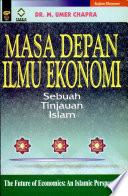Towards a Just Monetary System is the first comprehensive study of the goals, nature and operations of the monetary system of Islam, which has justice as one of its most indispensable objectives.For most people, including some Muslims, an interest-free economy is a mystery. Hence a number of questions are asked. Has Islam really prohibited interest and, if so, what is the purpose behind this? Can an economy run without interest? What will be the impact on resource allocation, savings and capital formation, economic stability and growth? Dr. Chapra takes the mystery out of the subject by answering these and a number of other questions by means of a thorough economic analysis. While he shows the rationale behind the prohibition of interest and the strengths of a purely equity-based Islamic economy, he also indicated the problems and gives a realistic proposal for solving them. Dr. Chapra also elaborates the changes that must be introduced in the nature and operations of commercial and central banks: the auxiliary institutions which must be established, and the new tools of monetary policy that must be developed to enable the Islamic money and banking system to function effectively. He however warns that the abolition of interest is not the only value of Islam and unless it is political institutions of Muslim countries, their economies cannot be transformed and socio-economic justice as well as a whole range of other important goals of Islam cannot be realized. This calls for a gradual transformation, but with a total commitment.The Islamic Foundation is an educational and research organization developed to make Islam a living reality in our age. For this purpose, it aims at improving human communication and developing a better understanding of Islam among all people of the world, Muslim and non-Muslim, so as to galvanize man to the message and ideal of One God and the unity of mankind. As brought by all Prophets of God throughout the ages, last of whom was the Prophet Muhammad (blessings of Allah and peace be upon him). An important aspect of the foundation’s multifarious activities is the publication of literature of Islam.
Towards a Just Monetary System is the first comprehensive study of the goals, nature and operations of the monetary system of Islam, which has justice as one of its most indispensable objectives.For most people, including some Muslims, an ...









